The documents for the 19th UMAC Annual General Meeting, to happen in Kyoto, September 3, 2019, are now available:
– Agenda
– Annual Report July 2018-July 2019
– Minutes of the 18th AGM, Miami.
Download them here.
The documents for the 19th UMAC Annual General Meeting, to happen in Kyoto, September 3, 2019, are now available:
– Agenda
– Annual Report July 2018-July 2019
– Minutes of the 18th AGM, Miami.
Download them here.
UMAC is delighted to announce that the I Meeting of University Museums from Western China took place in Chengdu, last July 19.
The I Meeting was hosted by the Electronic Science and Technology Museum of the University of Electronic Science and Technology (UESTC). University museum directors of all disciplines in the arts, sciences and humanities attended, presented their museums and committed to continue to work together in the future.
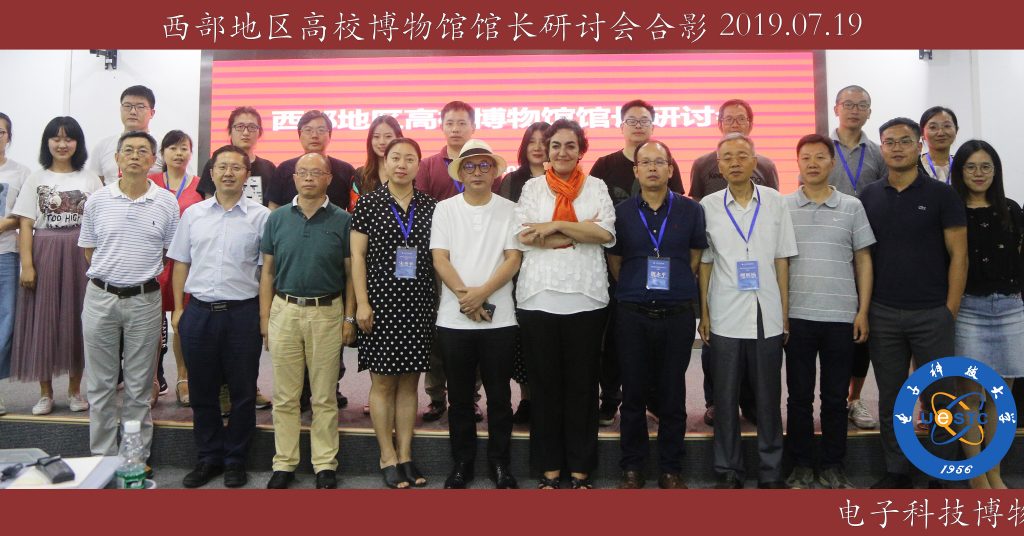
Congratulations to this very new regional network of university museums!
Last week, UMAC signed the agreement with the Vice-President of the University of Electronic Science and Technology of China (UESTC), Professor Xiaorong Shen, to conclude the first stage of the UMAC app. This app, developed by the Electronic Science and Technology Museum of UESTC, under the coordination of Zhao Ke, will enable access to the World Database of University Museums and Collections data from any smartphone anywhere in the world.
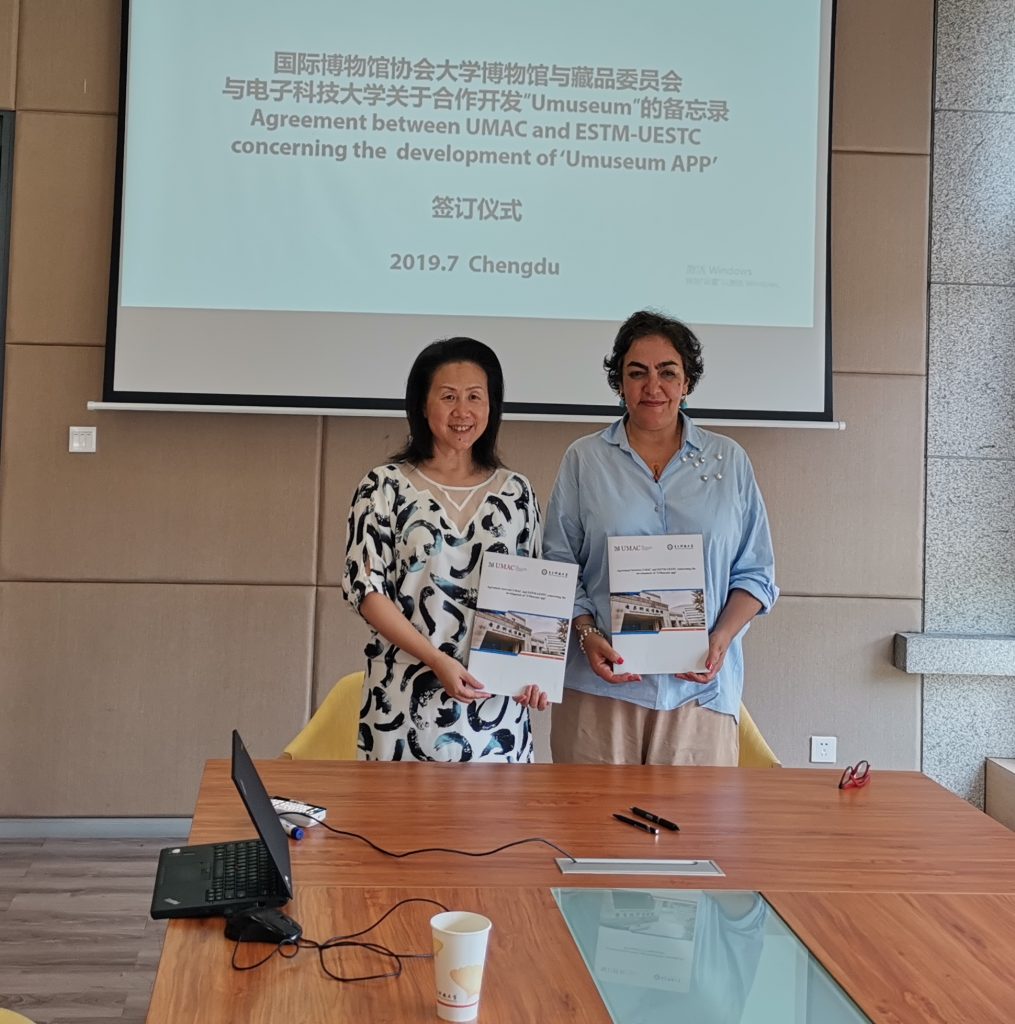
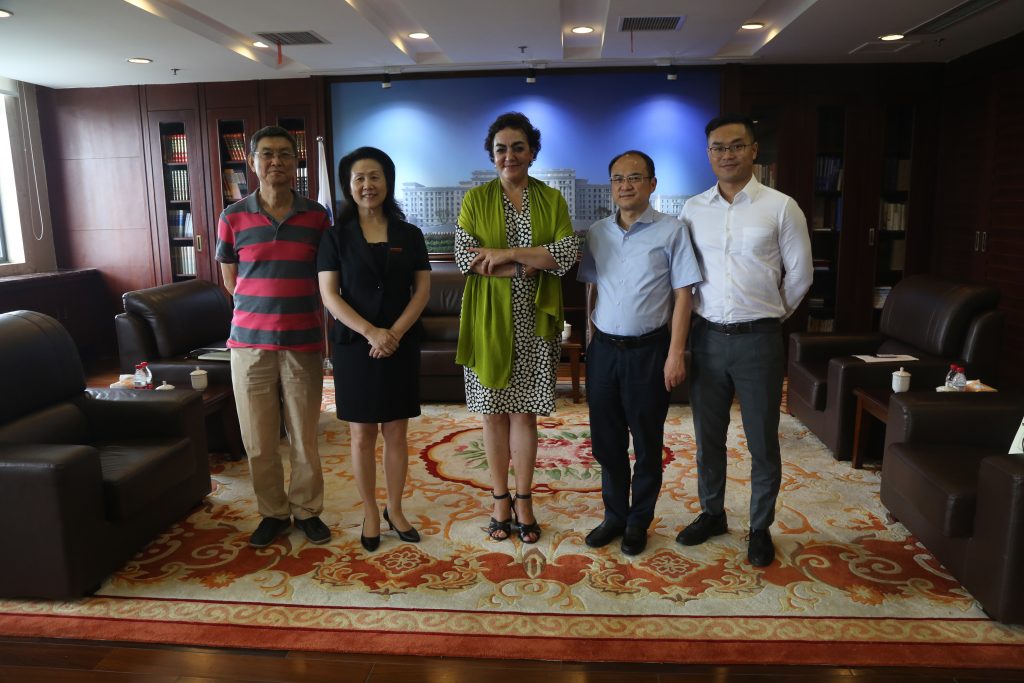

UMAC is delighted to be co-organising with the Keio University Art Center in Tokyo the seminar ‘UNIVERSITY MUSEUMS AS CULTURAL COMMONS: INTERDISCIPLINARY RESEARCH AND EDUCATION IN MUSEUMS’ (9-10 September).
Registrations are now open until 9 August 2019.
If you are attending the ICOM 2019 and UMAC 2019 conferences in Kyoto and wish to attend the Tokyo UMAC Seminar, do not forget to register because registrations are separate.
See you in beautiful Tokyo!
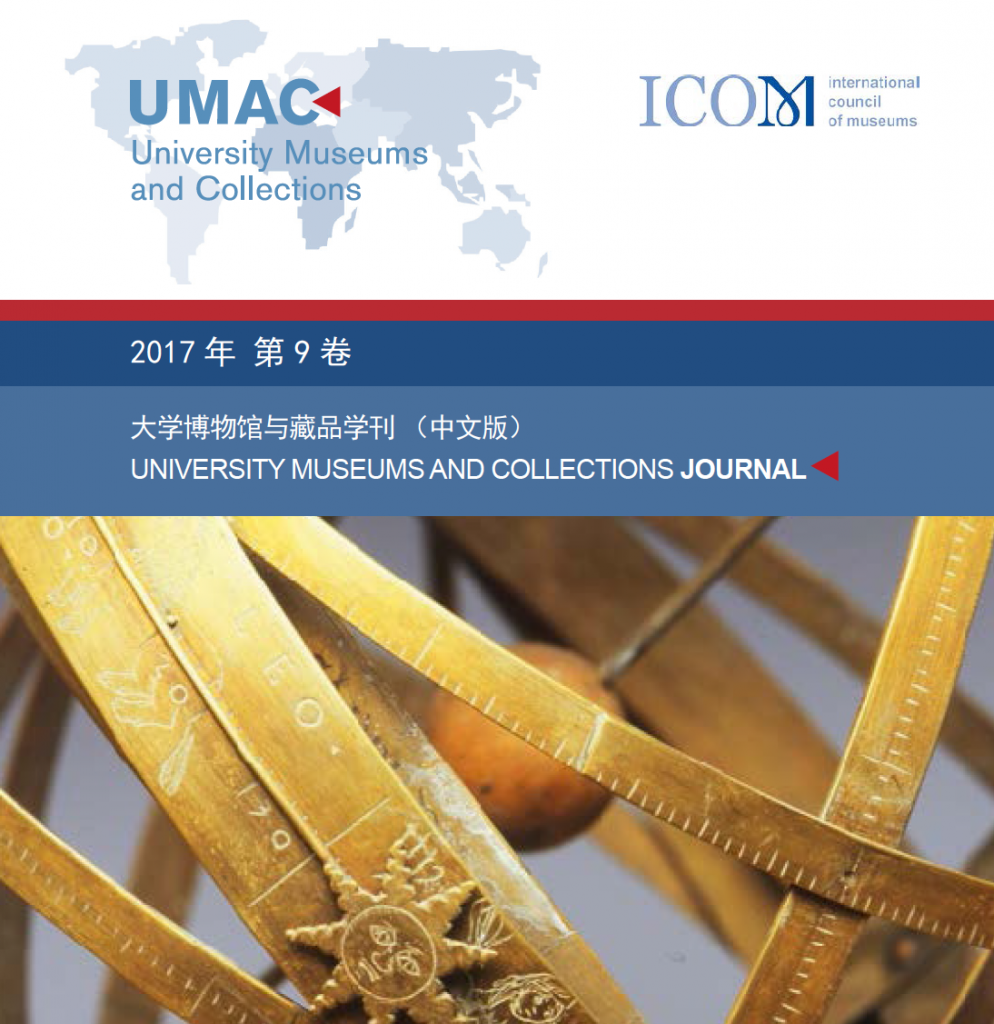
In September 2018, UMAC signed an agreement with Shanghai University Museum, China, to provide translations of our journal University Museums and Collections Journal (UMACJ) into Chinese.
This agreement allows UMACJ to be available to a new and large sector of museum practitioners and university administrators as a free open source publication.
Volumes 8 & 9 of UMACJ are now available with more to follow soon.
UMAC is deeply grateful to the Shanghai University Museum for this important work through our on-going partnership.

Universidad del Rosario, Bogotá, Colombia
MUSEO DE LA UNIVERSIDAD DEL ROSARIO Continue reading → “COLLECTION OF THE MONTH: Museo de la Universidad del Rosario, Bogotá”
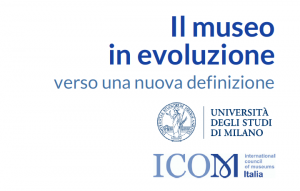
Marta C. Lourenço
UMAC Chair, University of Lisbon
Speech given at the meeting ‘Il museo in evoluzione verso una nuova definizione’, organised by ICOM Italy and the University of Milan, 8 May
Good morning, colleagues and friends.
I am so grateful and honored for the invitation to participate in this very important meeting and I am sorry I cannot be with you physically.
I congratulate the University of Milan and ICOM Italia for the initiative and I warmly salute my round table colleagues.
As UMAC Chair, and even before, I often receive emails from around the world asking for a definition of a university museum.
For 20 years my answer has been invariably the same:
There is no definition of ‘university museum’ outside ICOM’s. Museums are museums. The only definition that we can give is that a university museum is a museum in the ICOM sense that belongs to a university or, more broadly, a higher education institution.
The same ICOM definition applies, the same ICOM standards, the same ICOM code of ethics. Replying something different would be to deliberately position university museums outside the museum sector, and in fact, outright reject everything our community has fought for during the past 20 years.
It would be to reject UMAC itself!
Having said this, I totally understand why people want a definition of ‘university museums’. First, people think there should be a specific definition to accommodate the specificity of university museums. Moreover, the ICOM definition is problematic in universities today.
Today, I would like to share three brief notes around the topic of ICOM’s museum definition.
But first, since this is a meeting organised by the University of Milan and ICOM Italy, a few words about Italian university museums. And I would like to invite our Italian Colleagues, to take a step back for a moment and consider the layers of the Italian broader legacy to the university museum community – they are several, and they go far back in time.
First, Italy gave us the first university collections and museums, organised in the 16th century to support teaching in medicine and pharmacy. It gave us the Botanic Gardens of Padova, Florence and Pisa, the Brera Observatory there in Milan, Aldrovandi’s Herbarium in Bologna, the Florence collection of anatomical waxes, the Anatomical Theatres of Bologna, Pavia and of course, Padova, the Cesare Lombroso Collection (now Museum), the Cabinets of Physics of Padova, Urbino and Ferrara, the Medical Collections of Siena, and so many of the finest, earliest, human achievements in knowledge, beauty, and craftsmanship that we can find anywhere today.
More importantly even, Italy gave us the University of Bologna, which should be world heritage, in itself, symbolically, on behalf of all present and future universities.
Second, Italy has been a world reference in the promotion of their university museums, collections and heritage for 20 years now. In every initiative, Italy has always been two or three steps ahead of everyone.
The creation of the Commissione Musei in 1999, clearly positioned the responsibility for the preservation and access of Italian university museums, collections and heritage right where it should be: under the CRUI, the highest non-governmental institutional body, one with authority and influence over the Italian higher education sector. This was done six years before the Council of Europe unanimously recommended European countries to do just that.
Italy is also a pioneer in the integrated management systems of university heritage. The University of Cambridge created its museum consortium in 2012 (8 museums and 1 botanic garden). The University of Oxford in 2010 (4 museums, 1 collection, 1 library, 1 botanic garden and 1 arboretum).
Today, practically all universities that I know of have created or are creating formal or informal networks of museums and collections, but already in 2000, the Commissione Musei was encouraging museum systems in every Italian university.
I have heard that the activities of the Commissione Musei have somehow recently slowed down and I sincerely hope that it resumes its paramount work.
Italy has also been a pioneer in the ‘third mission’ of universities, formally recognising in 2010 the role of museums, collections and heritage in the Research Quality Evaluation (Valutazione della Qualità della Ricerca). In 2017, I was delighted to participate as UMAC Chair in a very fruitful meeting at the University of Padova about academic rankings and the third mission. No such movement has been observed anywhere in the world, even in Latin America, where universities are most oriented towards the third mission.
But I would go back even further, to the Magna Charta Universitatum, signed in Bologna in 1988. Since then, it has been subscribed by almost 900 rectors from 86 countries.
The Magna Carta is one of UMAC’s reference documents, and personally, I use it frequently for inspiration. Its wisdom, depth and meaning are simultaneously simple, profound and timeless, in the line of great scholars, such as Wilhelm von Humboldt, the cardinal Newman, and Ortega y Gasset, among so many others. Italy also gave us that. I will come back to the Magna Carta in a minute.
A bit of historical context before I share my notes on ICOM and the museum definition.
Universities have assembled systematic collections for at least 500 years. The first records come from Italy as I said, but there are signs that objects were already used to support teaching in late-medieval universities at least in Paris and the Merton College. The first museum in the modern (ICOM) sense of the term also opened in 1683 in a University – the Ashmolean Museum in Oxford.
In the 19th century, all over the world but particularly in Europe and North America, the number of university museums and collections exploded. It was the Golden Age.
On the one hand, the ‘new’ university modelled after Berlin in 1810, had research in its core; on the other hand, emerging disciplines such as archaeology, anthropology, the natural sciences, art history, and others, were anchored on collections. Research was at the heart of the new Humboldt university and collections were at the heart of research.
Many universities in Europe had 20-30 museums and they were among the best in the world.
The decline came gradually in the 20th century, and more intensely after the 2nd world war. For reasons I have no time to discuss, the idea of ‘museum’ stopped being ‘natural’ in a university.
In Europe, the nadir of university collections and museums was in the late 1980s and the 1990s. Many museums were closed, collections dispersed and a lot was lost.
It was also by then – and because of that – that the international community began to mobilise – first at national level, in the USA, UK, Korea, Brazil, among others, then at international level.
Universeum, the European Academic Heritage Network, was created in 2000 and UMAC was created in 2001.
We are better now, in general. In the past 20 years, awareness towards university heritage has significantly grown – largely due to the recognition by ICOM – and many collections were meanwhile reorganised, preserved, and made accessible. They are gradually being used again for teaching and for pure and applied research in many areas. New university museums are being created, much more open and better prepared to ‘deal’ with the general public.
However, there was no time, let alone resources, to reverse decades of abandonment, arbitrariness and isolation. Therefore, we have before us an ultra-complex, heterogeneous, fluid and fragmented landscape, encompassing:
MANY TYPES OF DIFFERENT THINGS
IN DIFFERENT STATES OF ORGANISATION AND ACCESS
The only way to respond is with responsibility, precision and clarity: with the strength of our pillars, our guidelines and our standards.
We need to be able to clearly say to rectors, university administrators and managers, professors, researchers, librarians, students, that natural history specimens in a dozen showcases in a corridor are not a museum.
We need to tell them that museums, collections and heritage are not their property.
We need to be able to say that heritage is not to be moved or disposed of according to the fluctuations of teaching and research, or personal taste.
We need to be able to say that heritage requires highly specialised professionals for its preservation and care. And we need to be able to say that museums, collections and heritage have to be accessible to everybody, not just a few selected friends, colleagues and students.
And for this, we need a good, solid Museum Definition by ICOM. And it’s not any definition. It should be a clear, simple and normative definition – not abstract, conceptual, or metaphorical. We all know museums have the power to be magical and ever-changing inspirational places, but ICOM’s job, in my view, is to act as a normative reference, not as a source of poetry. This is paramount for the university museum global community. It’s my first note for you today.
The second note is about the status of collections.
Universities have always had collections that may never be in museums – think of an herbarium, or physical anthropology collections, or many medical teaching collections. Isolated collections, outside museums, should not be considered orphaned. They need to be properly preserved and made accessible. For that to happen, we need to abandon the idea that only museums matter. Collections need proper statute and standards.
My third and final note is that in universities, perhaps more than anywhere, we need transversal and integrated approaches to heritage, encompassing museums, collections, archives and buildings.
University heritage was not organised around the idea of regional or national identity or around the concept of a shared territory. University heritage in the sciences, arts and humanities was organised around first and second mission initiatives, therefore around the idea of retrieving information to generate and disseminate knowledge. This is their specificity, which is a transversal one.
To conclude.
University museums, collections and heritage need good professionals, solid management tools – good definitions of museums, collections, archives – and integrated approaches to face the intrinsic volatility of the university and simultaneously enable them to tell unique stories about the complex, ugly, painstaking, difficult and often dark human endeavour of knowing about nature, the universe and about ourselves. This is their cultural contribution to society.
In the Magna Carta, rectors clearly wrote in its first fundamental principle that “the university (…) produces, appraises and delivers culture by research and teaching” (underlined mine). Note that the text does not say that universities are to provide culture apart from research and teaching.
There is no third mission in the Magna Charta, there is only one mission really.
THANK YOU.
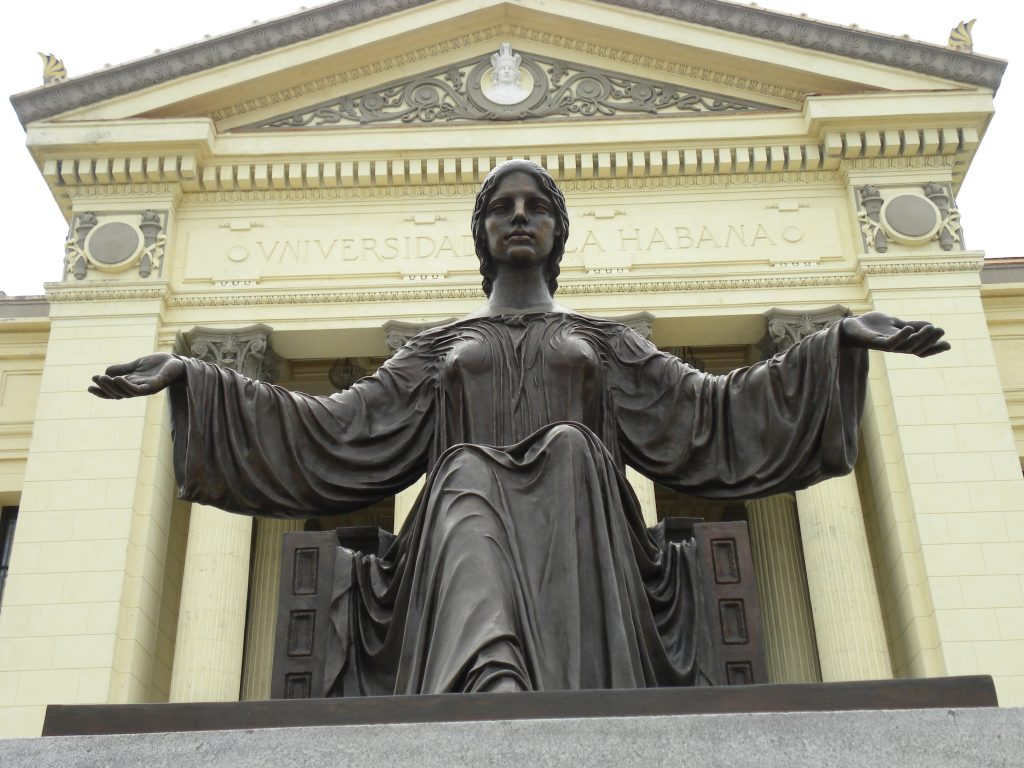
Last week, on International Museum Day — 18 May 2019 — the Cuban community of university museums and collections came together and created a national network.
The Network of Cuban University Museums will be led by the Heritage Unit of the University of Havana, under the chairmanship of Professor Claudia Filipe.
UMAC is delighted and entirely supports this initiative. There should be even more local and national networks of university museums and collections. See here the ones we know about.
Congratulations to our Cuban colleagues!
In Kyoto, UMAC will hold elections for its new Board 2019-22. The candidates for the positions of Chair, Vice-Chair, Secretary, Treasurer and Board Member were announced yesterday.
Learn who they are here.
18 May is fast approaching and ICOM has prepared all the necessary information for planning and disseminating the activities of your university museum and collection.
Here are all the materials you need:
UMAC strongly encourages all university museums and collections to join this international celebration.